7 Signs of Major Depression with Psychotic Features
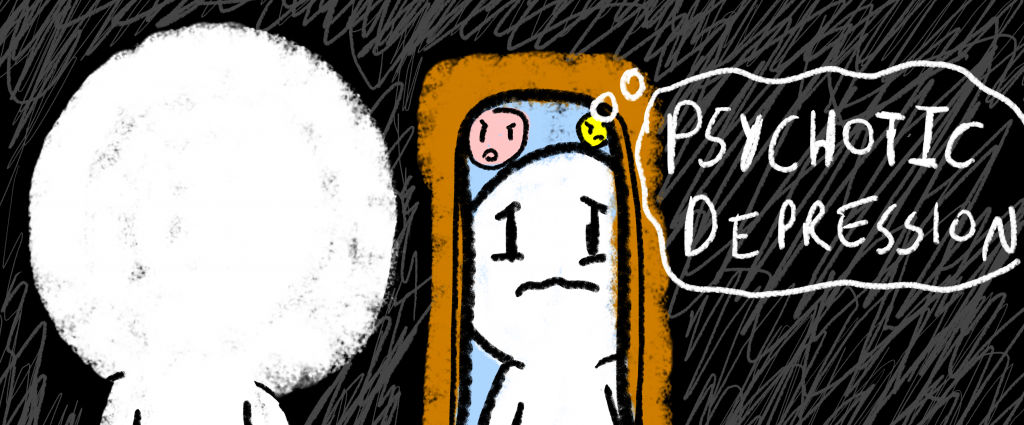
Hi there Psych2goers, this is a disclaimer that this article is for informative purposes only. It is not intended to diagnose any conditions or give mental health advice. Please reach out to a healthcare provider or mental health professional if you are struggling.
Depression is a difficult condition to live with and affects the way a person functions and how they feel about the world around them. It also is the most common psychiatric condition and has affects up to 7.1% of the U.S population (NIMH 2019). However, depression comes in many different forms and impacts each person differently. Sometimes depression may come with delusions or hallucinations, known as psychotic features – earning the name: psychotic depression. These bring a new cast of issues to a disorder that is already troublesome to deal with. To better understand what exactly psychotic depression is, in this article, we’ll be looking at 7 signs of major depression with psychotic features.
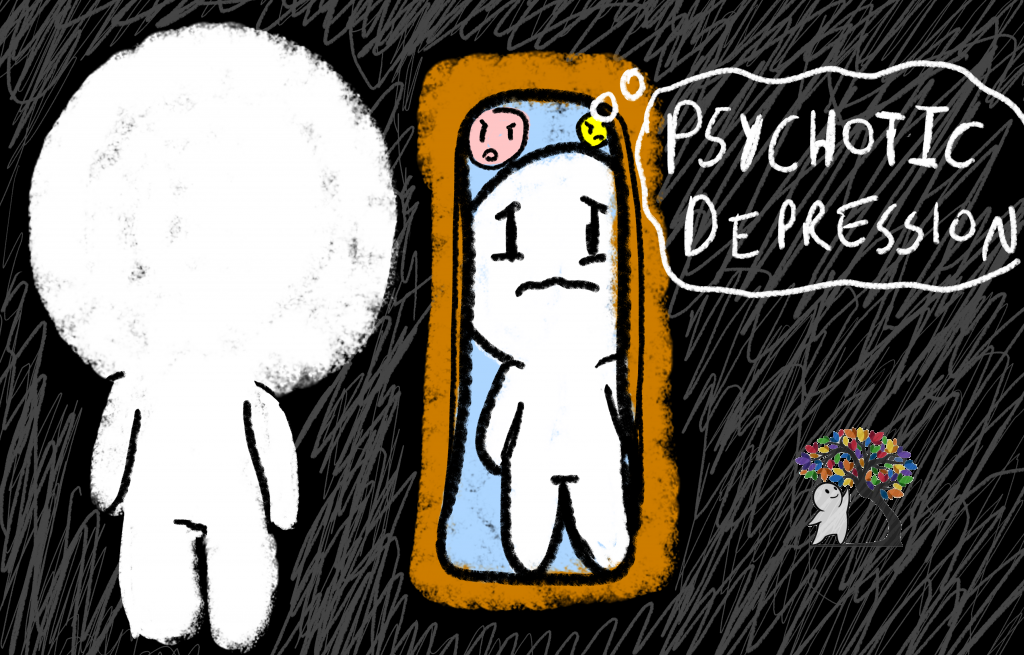
Before we begin, we have articles about both depression and psychosis to help better understand each individual component.
1. Feeling Hopeless and Helpless
Psychotic depression is very similar to “standard” depression. Feeling hopeless and helpless is a huge indicator of both depression and psychotic depression. You may start doubting yourself and feel stuck in your situation. This can be over anything in your life; perhaps you feel that you’ll never progress in your job, or maybe you feel that your mental state will never get better (Kerr 2018).

2. Holding False Beliefs
Delusions are possibly the biggest indicator that depression has psychotic features. Some people may believe that they’re infected with some kind of disease, others may believe that they’ve committed some sort of heinous crime. The delusions usually are related to the depressive symptoms – they’re in some way causing you to feel negative about a certain scenario, whether it be your health or something you’ve done to others (Black 2019).
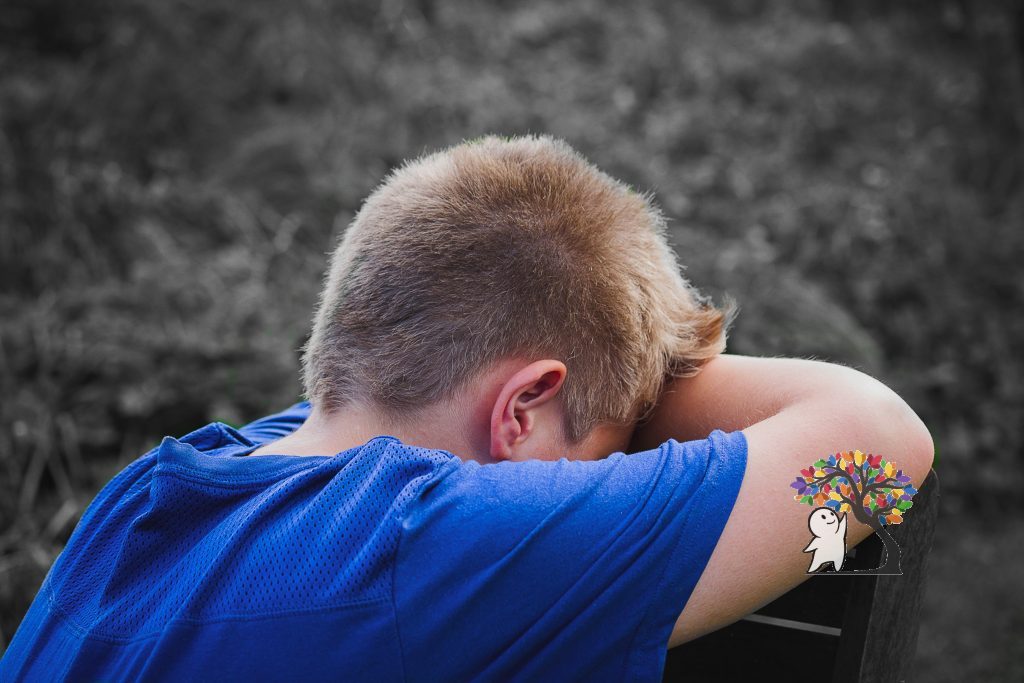
3. Poor Concentration
Depression often affects your ability to concentrate. In psychotic depression, this can be in part due to either the psychotic features, or the depressive features. Other times both. With these, thoughts can be loud and overwhelming making it difficult to focus on what’s necessary. It can be hard to start and finish tasks which can cause problems, especially with school and work performance (Kerr 2018).

4. Losing Pleasure In Activities
Losing interest in activities that you once enjoyed is another huge indicator for depression. The combination of this with the psychotic features can take the pleasure out of anything you used to enjoy. You may find yourself staying in more, you might not partake in your favorite hobbies anymore, and you may find yourself asking what the point is in anything (Kerr 2018).

5. Feeling Guilty
Guilt is another common issue in depression. This may be coupled with a delusion, leading you to feel guilty over something you haven’t done. Other times, the depressive part of this can cause you to feel like a burden to others. These feelings, in any scenario, are often irrational and disproportionate to reality. This can be especially tricky in the presence of a delusion, as the delusion may present itself as realistic. For instance, someone may feel guilty because they committed a crime against someone, despite not actually having done so. Someone may also hear voices shaming and critiquing who they are, which can fuel the guilt (Black 2019).

6. Suicidal Ideation
Plotting or thinking about ending your life is a tragic symptom of depression. Sometimes life can seem overwhelming and cruel to the point where it feels that all hope is lost. On top of it, experiencing intense delusions or hallucinations can make life extremely difficult, especially since they’re usually of a negative nature; hearing voices criticizing you/ believing you have an incurable disease. If you feel any signs of suicidal ideation, it is highly recommended to seek help right away. There are resources and help available to get through the darkest of times (Brightquest 2020).
7. Seeing/Hearing Things That Aren’t There
Hallucinations are a less common sign of psychotic depression, but may still appear. You might see and hear things that aren’t actually there, either in a direct or indirect way; for instance, seeing a shadow flicker versus an actual being. Similar to delusions, these hallucinations usually come with a darker theme and actively hurt the person experiencing them. For example, someone may hear voices yelling at them and telling them that they’re worthless. It is important to know that these psychotic symptoms are related to the depression. In other psychotic disorders, like schizophrenia, the psychotic symptoms are dominant over the depressive ones; schizophrenia may or may not be accompanied with depression. This is why it’s important to seek a professional diagnosis (Medline Plus 2019).
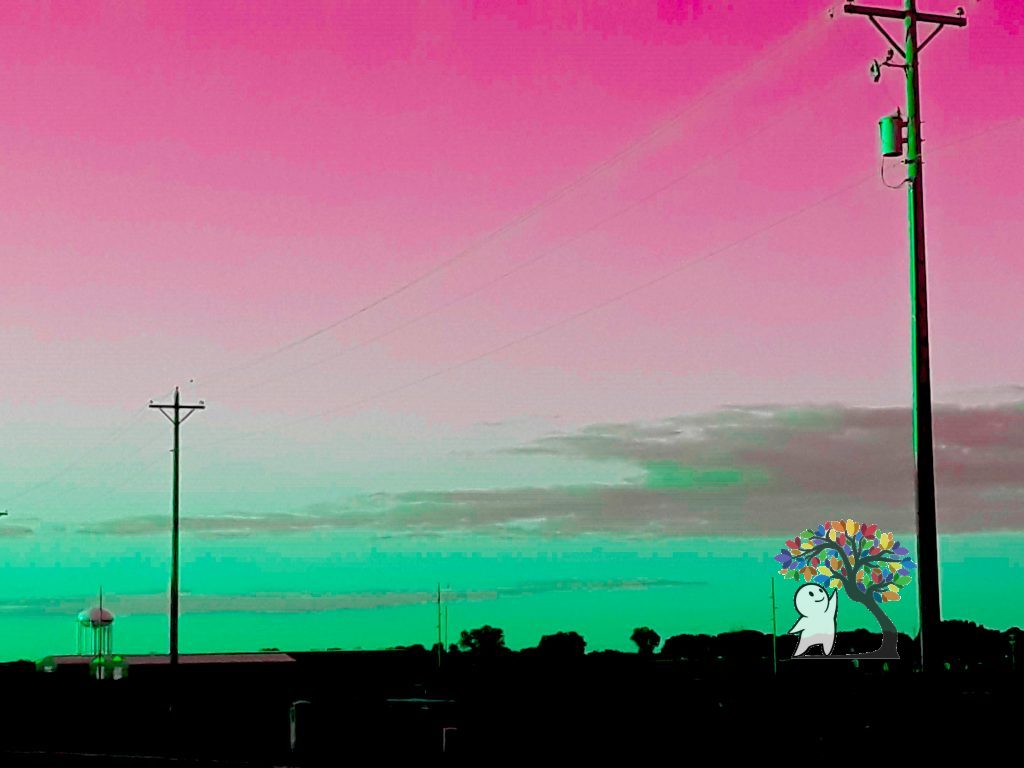
Depression is difficult to deal with on its own. Having psychotic features on top of it makes it even trickier. Please note that if you’re experiencing psychotic symptoms, it’s best to seek medical help right away. There are treatment options available and they have a high success rate (Black 2019). What do you think about psychotic depression? Is there anything we missed? Let us know in the comments!
References:
- Black, R. (2019, April 10). Psychotic Depression: What It Is and What You Should Know. Psycom.Net – Mental Health Treatment Resource Since 1986. www.psycom.net/psychotic-depression-what-you-should-know
- Brightquest. (2020, July 5). Major Depression with Psychotic Features –. BrightQuest Treatment Centers. www.brightquest.com/major-depression/major-depression-psychotic-features/
- Kerr, M. (2018, September 5). Major Depression with Psychotic Features (Psychotic Depression). Healthline. www.healthline.com/health/depression/psychotic-depression#symptoms
- National Institute of Mental Health. (2019, February 1). NIMH » Major Depression. NIMH. www.nimh.nih.gov/health/statistics/major-depression.shtml
- Rothschild, A. (2019, May 29). Unipolar major depression with psychotic features: Acute treatment. UpToDate. www.uptodate.com/contents/unipolar-major-depression-with-psychotic-features-acute-treatment
- U.S National Library of Medicine. (2020, August 25). Major depression with psychotic features. Medline Plus. medlineplus.gov/ency/article/000933.htm

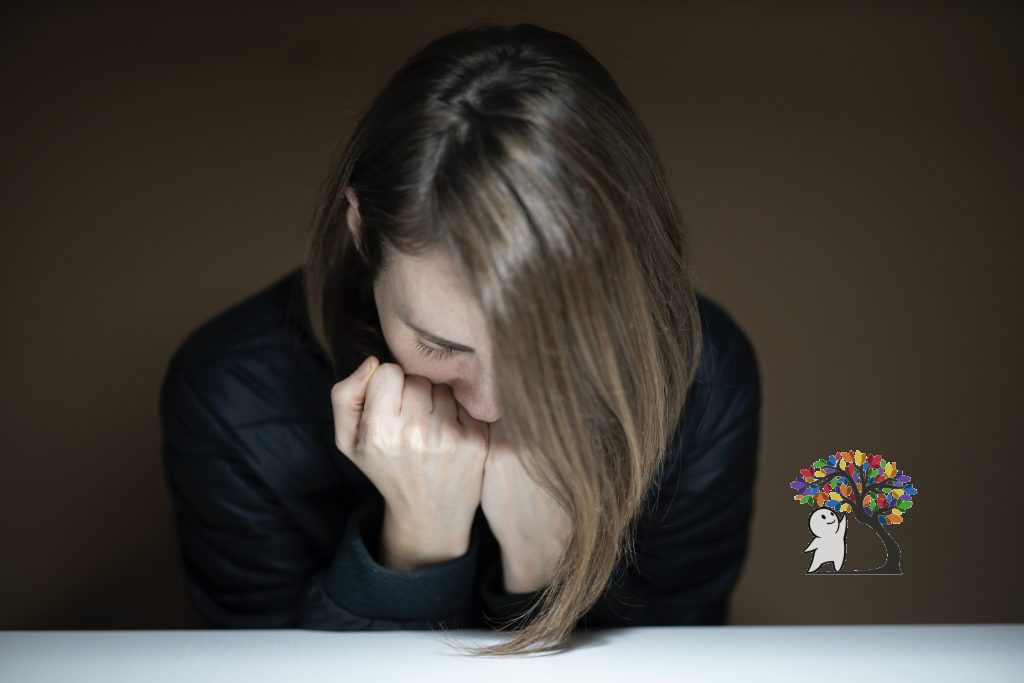


Responses